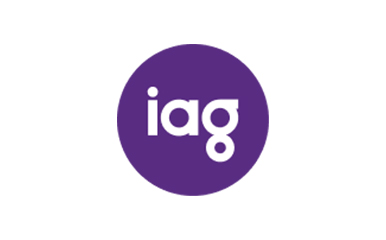Do you have a question? Want to learn more about our products and solutions, the latest career opportunities, or our events? We're here to help. Get in touch with us.

Do you have a question? Want to learn more about our products and solutions, the latest career opportunities, or our events? We're here to help. Get in touch with us.
We've received your message. One of our experts will be in touch with you soon.
Datacom works with your brand to unlock business growth and help you exceed your customers’ expectations. We create connected and personalised digital experiences that encompass multiple marketing channels and every modern touchpoint, maximising value and creating new opportunities. We use a design-thinking approach to understand your customers’ needs and deliver experiences through user research, information architecture and responsive design.
Our consultation services cover digital strategy, marketing automation and analytics, customer data strategy, web and app development, ecommerce, managed services, content and workflow management and digital signage.



















Ensure your content meets your customers' needs, builds trust and provides value by constantly measuring and improving your experiences. Our user experience (UX) and user interface (UI) designers and development specialists can help you deliver a digital sales channel that meets your customers' needs by engaging them with personalised content on any device.
Let Datacom help you get an understanding of your insights through digital channel strategy, marketing data strategy and digital analytics to continously improve content and customer experience.
We take on the management and evolution of your digital experience platforms to enable continuous value. Measure customer behaviour, interactions, lead-generation costs, conversion and standard web metrics to exceed your customers' needs and deliver on business goals.
CX, or customer experience, refers to the overall perception and satisfaction a customer has with a business or brand based on their interactions, transactions, and engagements throughout their entire journey. It encompasses every touchpoint a customer has with a company, from the initial awareness and consideration stages, through the purchase or service usage, and all the way to post-purchase support and loyalty. A positive customer experience is essential for building strong customer relationships, increasing brand loyalty, and ultimately driving business success. CX efforts aim to understand and meet customer expectations, enhance satisfaction, and create memorable, seamless, and meaningful interactions at every step of the customer journey.
Digital marketing plays a crucial role in the success of ecommerce businesses by driving traffic, increasing brand visibility, and converting visitors into customers. It encompasses various strategies and channels, including search engine optimisation (SEO), pay-per-click advertising (PPC), social media marketing, email marketing, content marketing, and influencer marketing. These approaches help ecommerce businesses reach their target audience, create brand awareness, and engage potential customers. Digital marketing also enables precise audience targeting, allowing businesses to tailor their messaging to specific demographics, interests, and behaviors. Moreover, it provides valuable data and analytics, helping ecommerce businesses make data-driven decisions to optimise their marketing efforts and improve ROI.
A platform strategy involves creating a technology-based ecosystem or marketplace that connects multiple stakeholders, such as customers, producers, and partners, to create and exchange value. Essential elements of a platform strategy include:
a. Core platform: The central infrastructure that facilitates interactions and transactions. This can be a website, app, or cloud-based platform.
b. User and stakeholder communities: Attracting and nurturing a diverse user base, including customers, developers, and partners, to participate in the platform ecosystem.
c. APIs and integration: Providing open APIs (Application Programming Interfaces) to enable third-party developers and partners to build on and extend the platform's capabilities.
d. Data and analytics: Collecting and analysing user data to gain insights and improve the platform's functionality and user experience.
e. Monetisation strategy: Determining how the platform generates revenue, whether through fees, subscriptions, advertising or other models.
f. Governance and moderation: Establishing rules and policies to maintain trust and security within the platform community.
g. Scalability and flexibility: Ensuring that the digital platform your company chooses can adapt and grow as user demands change and new opportunities arise.
It depends on your specific needs which Datacom can help you uncover and choose. A DXP (Digital Experience Platform) offers a broader range of capabilities beyond content management such as marketing, analytics and personalisation. A CMS (Content Management System) focuses primarily on content creation and management.
The choice depends on factors like budget, scalability requirements, and IT infrastructure preferences. SAAS is cloud-hosted, while on-premises involves hosting on your own servers. Due to the on-going costs of infrastructure and upgrades, most organisations choose to go SAAS these days.
Consider a DAM platform if you have a large volume of digital assets requiring organised storage, retrieval, and distribution across internal and external parties.
Consider goals, budget, technical requirements, scalability needs, and specific features. Evaluate alignment with business objectives and the ability to provide a seamless and engaging experience for your target audience. Datacom has a proven platform selection process to help guide you through a decision on DXP.